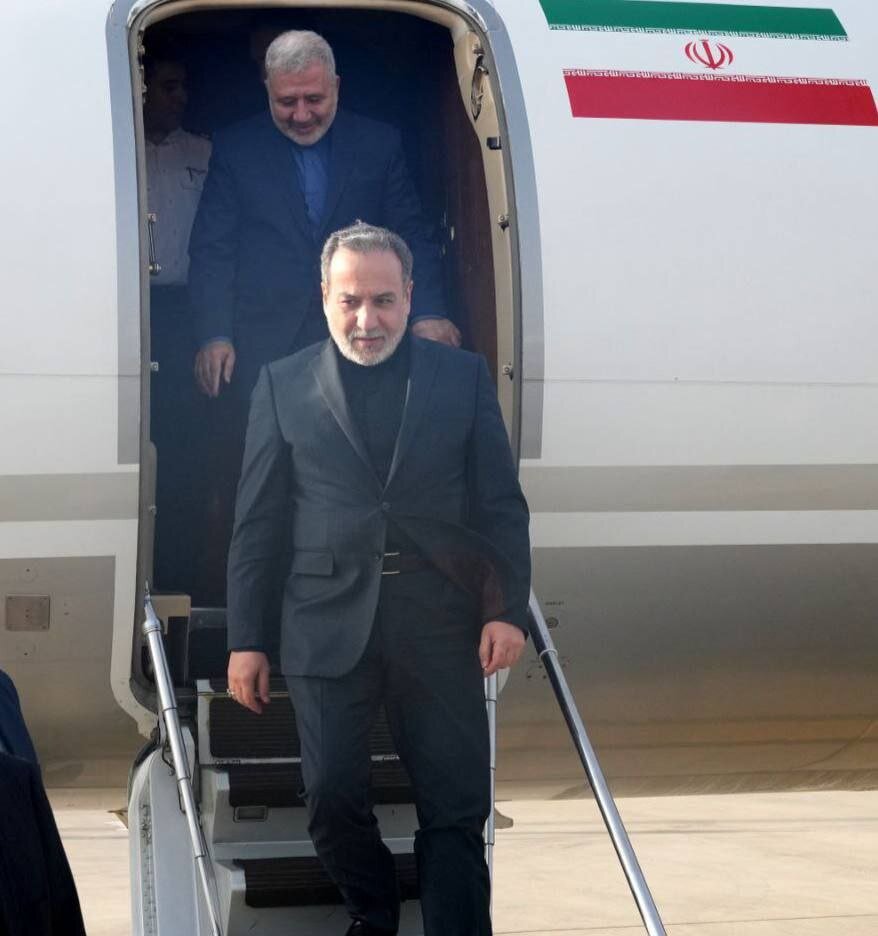Araghchi arrives in Jeddah for emergency OIC meeting

TEHRAN – Iran’s Foreign Minister Abbas Araghchi travelled in the Saudi port of Jeddah on Sunday to attend an extraordinary Organization of Islamic Cooperation (OIC) meeting. Before embarking on his trip, the diplomat warned in an op-ed that Israel’s expansionist ambitions pose an “existential threat” to regional states and international peace.
In the op-ed published in Asharq al-Awsat, Araghchi urged Islamic nations to forge a united front against the genocide in Gaza as well as the regime’s broader aggression across West Asia. He argued that the upcoming gathering in Jeddah must go beyond “statements of solidarity” with Palestinians and instead mark a turning point in mobilizing coordinated political, legal, and diplomatic pressure against Israel.
“This meeting must become a historic test for the Islamic Ummah,” he wrote, “and perhaps one of the few remaining opportunities to forge a regional and global coalition to halt Israel’s aggressions.”
Araghchi noted that Israel has been pursuing “one of the most horrifying human catastrophes of the modern era” in Gaza, and warned that such actions will extend far beyond the Palestinian enclave. He cited rapid settlement growth and settler violence in the West Bank, the “Judaization” of al-Quds, repeated strikes on Lebanon, attacks on Yemeni infrastructure, efforts to destabilize Syria, and most recently, a military aggression against Iran that killed more than 1,000 Iranians.
He said such policies were tied to Israeli leaders’ public references to a so-called “Greater Israel”, a project stretching “from the Nile to the Euphrates.”
“These are not passing claims,” Araghchi wrote. “They are explicit declarations of strategy that violate the UN Charter and international law, threatening the sovereignty and territorial integrity of Syria, Jordan, Egypt, Lebanon, Kuwait, Iraq, Saudi Arabia, and beyond.”
Earlier this month, Israeli Prime Minister Benjamin Netanyahu provoked regional outrage when he declared his commitment to the vision of a so-called “Greater Israel.” In remarks to i24 News, Netanyahu said he feels “very attached” to this vision, describing it as both “a historic and spiritual mission” that he believes generations of Jews before and after him share. He referred not only to the Israeli-occupied Palestinian territories but also to parts of Egypt, Jordan, Syria, and Lebanon, underscoring an expansionist outlook that has long been controversial in the region.
The concept of Greater Israel, which has circulated in certain strands of Israeli political thought, typically includes the West Bank, Gaza Strip, and Syria’s Golan Heights. Some interpretations also extend it to Egypt’s Sinai Peninsula, Jordan, Saudi Arabia, and parts of Iraq. Netanyahu’s invocation of this idea was swiftly condemned across the Arab states as a threat to sovereignty, peace, and regional stability.
Egypt’s Foreign Ministry demanded clarification, warning that such rhetoric “fuels instability and shows rejection of peace in the region.” Cairo emphasized that the only viable path forward is through ending the war on Gaza, resuming negotiations, and establishing a Palestinian state. Jordan issued one of the strongest rebukes, calling Netanyahu’s comments “a dangerous and provocative escalation, a threat to the sovereignty of states, a violation of international law and the UN Charter.” It added that such “delusional claims” would not undermine Palestinian rights or diminish Arab states’ positions.
The Palestinian Authority likewise condemned the remarks as “a disregard of the legitimate rights of the Palestinian people” and “a dangerous provocation” that threatens regional security. It reaffirmed its demand for an independent Palestinian state within the 1967 borders, with Eastern al-Quds as its capital. Hamas also seized on the remarks, saying they reveal “the danger this fascist entity poses to all the countries and peoples of the region.”
Beyond Palestine and Jordan, strong criticism came from Yemen, Qatar, and Saudi Arabia. Doha described Netanyahu’s statements as part of Israel’s “arrogant occupation policy,” while Riyadh rejected “expansionist ideas and projects,” reaffirming the Palestinians’ right to independence. The Arab League labeled the comments “a serious threat to collective Arab national security,” while the OIC warned that such rhetoric seeks to “evade Israel’s international obligations” and prolong conflict.
Leave a Comment